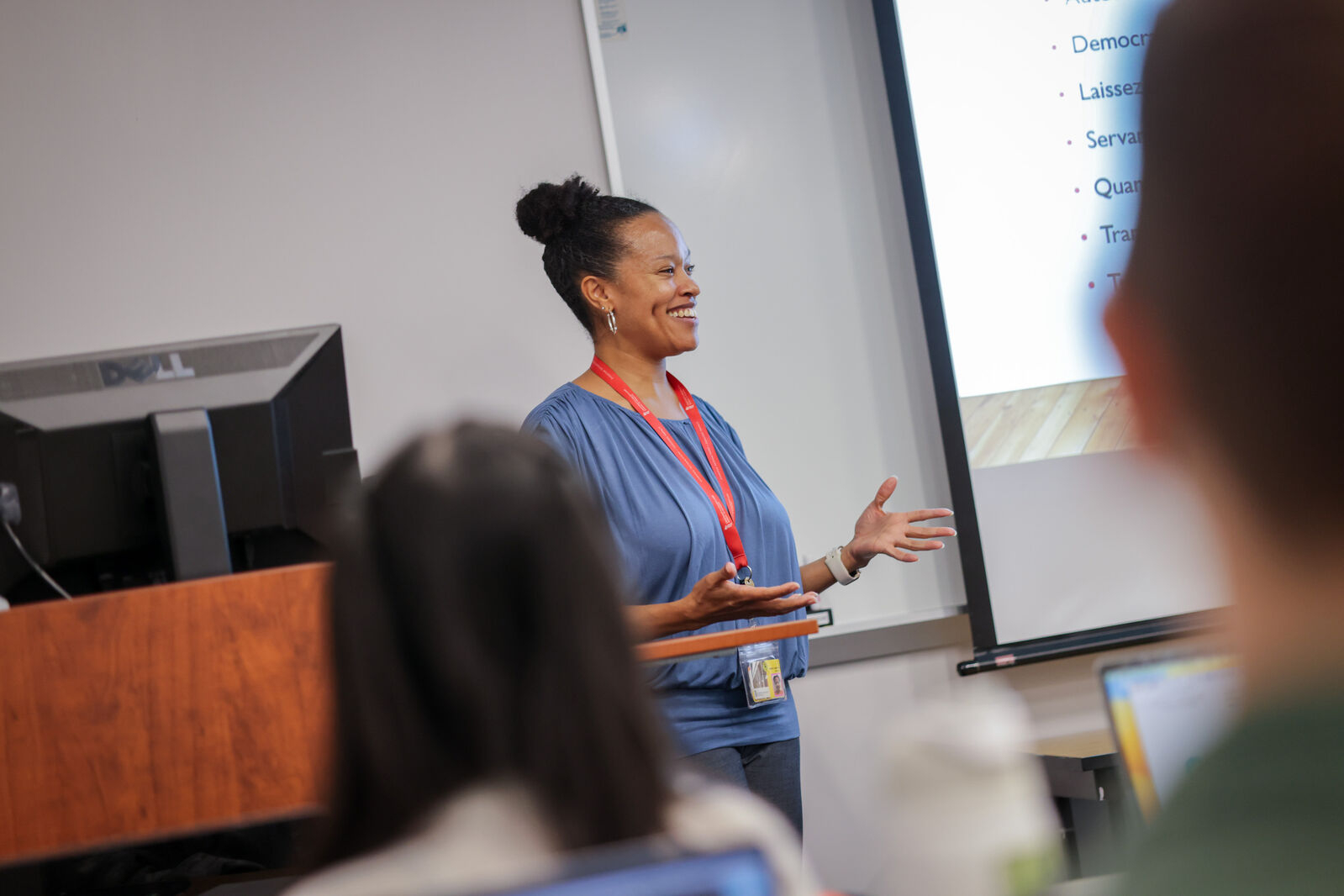Faculty Find Their Footing Through UMSON’s Innovative N-PROF Program
May 07, 2025 Mary Therese Phelan
UMSON’s new residency supports nurses transitioning from clinical roles to faculty with structured guidance and a strong sense of community.
For Kimberly Hampton, PhD, MBA, MS ’06, RN, assistant professor at the University of Maryland School of Nursing (UMSON), stepping into a classroom for the first time to teach was once a nerve-wracking experience.
But thanks to the School’s Nursing Professional Residency for Outstanding Faculty (N-PROF) pilot program, Hampton has found her footing.
“As a faculty member who is not only new to UMSON but also new to academia, I was excited to have the opportunity to learn from more experienced faculty members and connect with other colleagues through N-PROF,” Hampton said.
Launched in 2024, N-PROF was funded by a $145,000 Conway Innovation Challenge grant through Bill and Joanne Conway’s Bedford Falls Foundation Charitable Trust. The challenge was designed to spark scalable ideas that prepare more nurses for faculty roles and expand student enrollment.
N-PROF supports nurses transitioning from clinical practice into academic positions by offering structured guidance and community. The program is built on a cohort model, helping new faculty learn to develop curricula, teach effectively, advise students, collaborate on research, balance academic and clinical practice with scholarship and service, and integrate feedback from multiple sources.
N-PROF aligns with UMSON’s Institute for Educators’ mission to prepare and support nurse faculty across Maryland through education, mentorship, and professional development.
The overarching goal: Improve faculty retention by increasing their confidence, competence, connectedness, and contribution, said Susan L. Bindon, DNP ’11, MS ’96, RN, NPD-BC, CNE, FAAN, ANEF, associate professor, associate dean for faculty development, and director of the Institute for Educators.
“Every acute care hospital in Maryland has a one-year nurse residency program for new nurses,” Bindon said. “Prior to N-PROF, there was no such residency program for new faculty transitioning from practice to academia.”
Last summer, Bindon asked each UMSON academic department chair to identify new or novice faculty who might benefit from the program.
The chairs nominated about two dozen faculty members, and the pilot launched in August.
N-PROF participants meet monthly for an hour, during which the group reflects on what has been working well for them, offers each other encouragement, shares ideas, and learns about a topic Bindon selects. Guest speakers also present to the group on topics such as work-life balance; leadership roles for faculty; decisions, wins, and regrets; finance; research; student communication skills; and building one’s own personal brand.
Speakers often recommend books, so Bindon created a small N-PROF library with titles participants can borrow. She also conducts classroom observations and provides individualized feedback, helping each participant reflect on their goals and growth.
During a winter retreat, outside consultants helped the group deepen reflection and camaraderie. Facilitators explored how new and novice faculty members can use reflective practice, a process of critically examining your experiences to improve your performance and decision-making in the future, to help balance some of the stress of the faculty role. “The connection in the room was palpable,” Bindon recalled.
Faculty members say the program is already making a difference.
“N-PROF has been invaluable for my transition into academia,” said Caitlin Donis, PhD, MS ’13, AG-ACNP, AACNS-AG, assistant professor. “It gave me space to examine academic life, understand my teaching strengths, and connect with supportive mentors and peers.”
Hampton agreed. “I’ve received tips on managing time, brand-building advice, and communication strategies,” she said. “Dr. Bindon also gave me thoughtful feedback after observing my teaching. The connections I’ve made across our two UMSON locations have been incredible.”
The N-PROF pilot will be evaluated for its impact in July and potentially shared with other nursing schools nationwide.
“The feedback I get most often,” Bindon said, “is that the faculty love feeling like they’re not alone.”